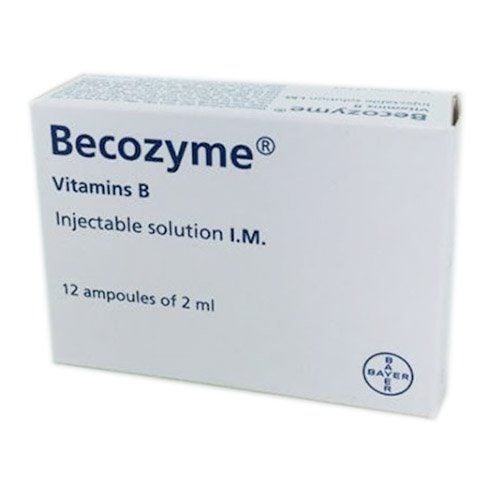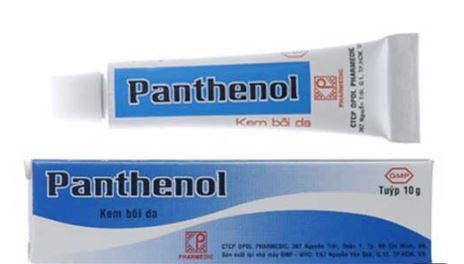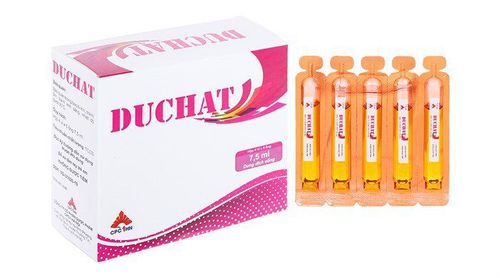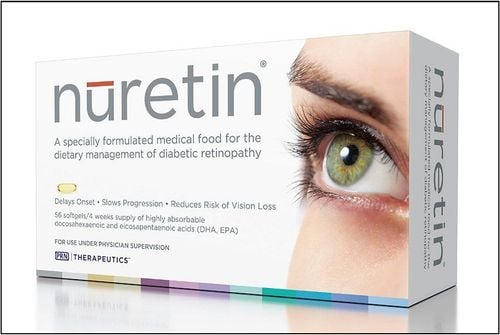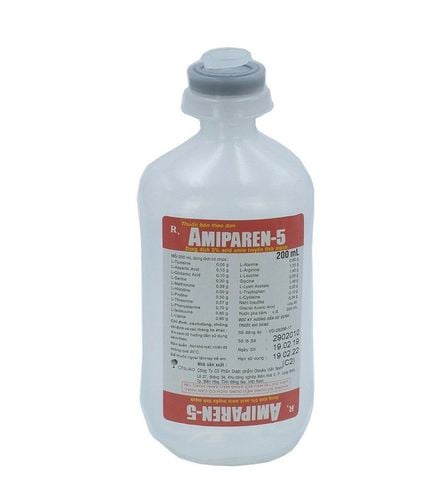This is an automatically translated article.
Royal jelly is a gelatinous (glue) substance produced by worker bees to feed the queen and her young. Royal jelly is commonly sold as a dietary supplement intended to treat a number of physical ailments and chronic diseases. Although it has long been used in traditional medicine, royal jelly's applications in Western medicine are controversial. Here are 12 potential benefits of royal jelly.
1. Contains a variety of nutrients
The main ingredients of royal jelly include water, carbs, protein and fat. However, the full chemical composition of royal jelly is still unknown, but its beneficial effects on health are thought to stem from the special proteins and fatty acids of royal jelly.
Royal Jelly contains nine special glycoproteins collectively known as royal jelly protein (MRJP) and two fatty acids, trans-10-Hydroxy-2-decenoic acid and 10-Hydroxydecanoic acid. In addition, royal jelly also contains some B vitamins and trace minerals. However, the nutritional composition varies considerably between royal jelly sources. Some vitamins commonly found in royal jelly include:
Thiamine (B1) Riboflavin (B2) Pantothenic acid (B5) Pyridoxine (B6) Niacin (B3) Folic acid (B9) Inositol (B8) Biotin (B7) Nutrients This nutrient may offer some potential health benefits, although more research is needed on these particular compounds.
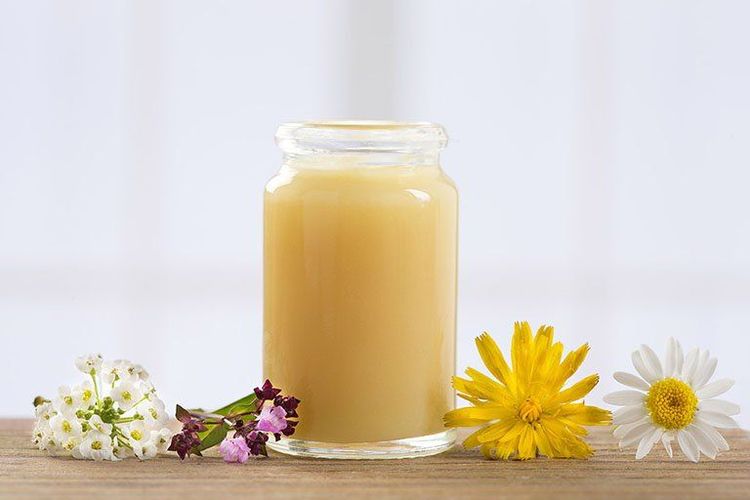
Thành phần chủ yếu của sữa ong chúa bao gồm nước, carbs, protein và chất béo
2. May provide antioxidant and anti-inflammatory effects
Royal Jelly is widely known to reduce inflammation and oxidative stress. In many test-tube and animal studies, the specific amino acids, fatty acids, and phenolic compounds found in royal jelly appear to have potent antioxidant effects. In addition, several test-tube studies showed reduced levels of inflammatory agents released from immune cells when supplemented with royal jelly.
Although these results are promising, human studies are still lacking.
3. May reduce the risk of cardiovascular disease by affecting cholesterol levels
Both animal and human studies demonstrate that royal jelly can positively impact cholesterol levels and thus reduce the risk of cardiovascular disease.
Although the exact mechanism is still unclear, special proteins in royal jelly may help lower cholesterol. One 12-week study found that rabbits supplemented with royal jelly significantly reduced total cholesterol and bad LDL by 28% and 23%, respectively.
Likewise, a month-long human study found a cholesterol reduction of 11% total cholesterol and 4% LDL bad cholesterol in people who took about 3 grams of royal jelly per day. In contrast, another small human study found no significant difference in cholesterol levels between participants treated with royal jelly and those receiving a placebo.
While these studies are promising, more research is needed to better understand the effects of royal jelly on heart health.

Sữa ong chúa có thể tác động tích cực đến nồng độ cholesterol và do đó làm giảm nguy cơ mắc bệnh tim mạch
4. May aid in wound healing and skin repair
Royal Jelly, used orally topically, can aid in wound healing and other inflammatory skin conditions. It is known to have antibacterial effects, which can keep wounds clean and free of infection.
An animal study showed an increase in collagen production in rats when given royal jelly extract. Collagen is an important structural protein for skin repair.
A test-tube study showed significantly enhanced tissue repair in human cells treated with royal jelly.
In contrast, a recent human study did not notice any difference in wound healing between the control group and the diabetic foot ulcer treatment participants when applied topically with jelly.
Finally, more research is needed on the effects of royal jelly on wound healing and tissue repair.
5. Special protein can lower blood pressure
Royal jelly can protect your heart and circulatory system by reducing blood pressure. Several test-tube studies indicate that special proteins in royal jelly relax smooth muscle cells in veins and arteries, thereby lowering blood pressure.
A recent animal study evaluated a supplement that combined royal jelly with other bee-derived substances and found a significant reduction in blood pressure in the royal jelly group. However, the exact role of royal jelly in this supplement is unclear. More research is needed to understand royal jelly's relationship with blood pressure.

Sữa ong chúa có thể bảo vệ tim và hệ tuần hoàn của bạn bằng cách giảm huyết áp
6. Regulates blood sugar by reducing oxidative stress and inflammation
Royal Jelly may also improve blood sugar control and insulin sensitivity by reducing oxidative stress and inflammation.
Multiple animal studies showed increased insulin sensitivity and marked protective effects on pancreatic, liver and reproductive tissues in obese and diabetic rats treated with royal jelly.
A small six-month human study demonstrated a 20% reduction in fasting blood sugar in healthy subjects supplemented with royal jelly daily.
7. Antioxidant properties can support healthy brain function
Royal jelly can enhance brain function. One study showed that rats that were stressed and then treated with royal jelly had lower levels of stress hormones and a stronger central nervous system than a control group.
Another study in postmenopausal rats given royal jelly showed the ability to help improve memory and reduce symptoms of depression. An animal study found that rats treated with royal jelly cleared certain brain chemicals associated with Alzheimer's disease.
Most of these studies attributed the protective effects to the brain and nervous tissue to the antioxidant properties of royal jelly. Although this data is encouraging, more human studies are needed.
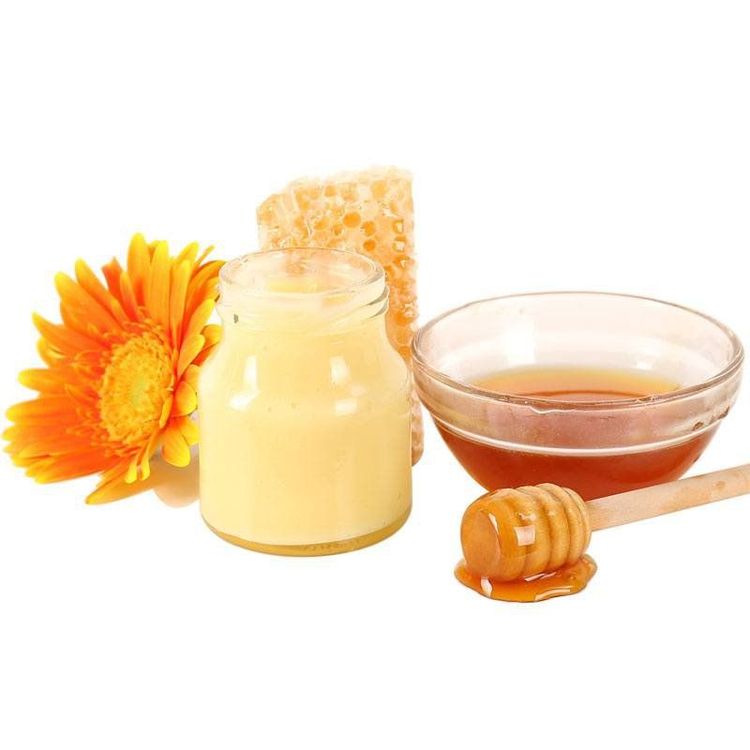
Sữa ong chúa có khả năng loại bỏ một số chất hóa học nhất định trong não liên quan đến bệnh Alzheimer
8. May increase tear production and treat chronic dry eye
Royal jelly can treat dry eyes. One animal study and one human study showed improvements in chronic dry eye condition in people treated with oral royal jelly. The results showed that royal jelly could increase the secretion of tears from the lacrimal glands in the eye.
No adverse effects have been reported from human studies. Therefore, royal jelly may be a low-risk option for chronic dry eye.
However, the study sample was quite small and it cannot be concluded that royal jelly can help improve this condition on a larger scale. Ultimately, more research is needed.
9. Can provide anti-aging effects through different means
Royal jelly can slow down the aging process in many ways. A few studies showed increased lifespan and improved cognitive performance in rats treated with royal jelly.
Royal Jelly is sometimes incorporated in topical skin care products to aid in the maintenance of healthier, younger looking skin.
Animal studies indicate that royal jelly may support increased collagen production and protection from skin damage associated with UV radiation exposure. Since human research on the anti-aging benefits of using royal jelly or applying it topically is insufficient, more research is needed.
10. May Support a Healthy Immune System
Royal jelly can enhance the natural immune response to bacteria and viruses from outside.
MRJP and fatty acids in royal jelly are known to promote antibacterial activity, may reduce infection rates and support immune function. However, most applicable data are still limited to the level of animal studies and test tubes. Therefore, more human studies are needed to confirm these effects.
11. Reduce side effects of cancer treatment
Chemotherapy and other cancer treatments come with significant negative side effects, including heart failure, inflammation, and gastrointestinal (GI) problems. Royal jelly may reduce some of the negative side effects associated with certain cancer treatments.
One study showed a significant reduction in chemotherapy-induced heart damage in rats supplemented with royal jelly. One very small human study showed that topically applied royal jelly could prevent mucositis, a cancer treatment side effect that causes gastrointestinal ulcers.
While encouraging, these studies do not draw firm conclusions about royal jelly's role in cancer treatment. Many studies are warranted.
12. Can Treat Some Menopause Symptoms
Royal jelly can also treat symptoms associated with menopause. Menopause causes a drop in hormones that are associated with physical and emotional side effects, such as pain, memory impairment, depression, and anxiety.
One study found royal jelly to be effective in reducing depression and improving memory in postmenopausal rats. Another study in 42 postmenopausal women found that supplementing with 800 mg of royal jelly daily for 12 weeks was effective in reducing back pain and anxiety.
13. Supplements and Dosages
Because research is relatively limited, a strong dose recommendation for royal jelly has not been established.
When used as a dietary supplement, royal jelly is available in its natural state, a gel-like substance, or in powder or capsule form.
Benefits have been observed at various dosages. Current research supports possible benefits at 300 to 6,000 mg per day.
Royal Jelly can also be applied topically to the skin and is sometimes incorporated in commercially available skin care products. If you have never used royal jelly before it is best to start with a very small dose to avoid serious allergic reactions and side effects.

Sữa ong chúa cũng có thể điều trị các triệu chứng liên quan đến mãn kinh
14. Risks and Side Effects
Although it is probably safe for most users, royal jelly is not without risks. Because, it is a bee-derived product, people with allergies to bee stings, pollen, or other environmental allergens should exercise caution.
Some environmental contaminants, such as pesticides, have also been found in royal jelly and can lead to allergic reactions.
Although, using royal jelly is likely safe for most people, sometimes serious side effects have been reported. Possible symptoms include:
Asthma Anaphylactic shock Contact dermatitis Some of these reactions are severe, even fatal.
Although, royal jelly has a lot of health benefits, but you should also use it in a moderate amount, be careful with allergic ingredients in royal jelly.
Please dial HOTLINE for more information or register for an appointment HERE. Download MyVinmec app to make appointments faster and to manage your bookings easily.
Reference source: healthline.com




